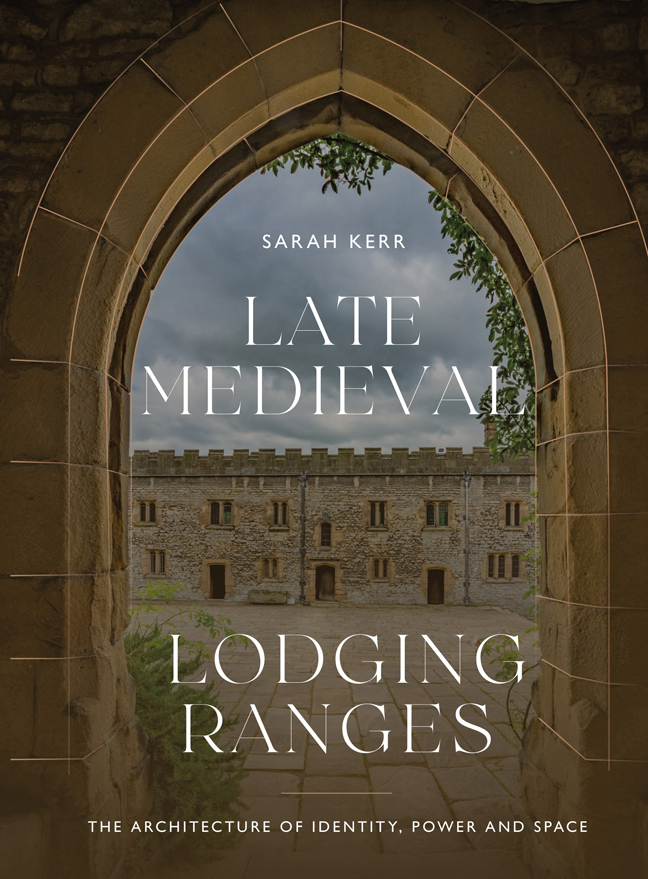Book contents
- Frontmatter
- Dedication
- Contents
- List of Illustrations
- Preface and Acknowledgements
- List of Abbreviations
- Introduction: What are Lodging Ranges?
- 1 A Room of One's Own
- 2 Expressions of Individuality and Collectivity
- 3 The Theatre of Display
- 4 The Spaces Between
- Envoi: Narratives in Stone and Space
- Glossary
- Gazetteer A
- Gazetteer B
- Bibliography
- Index
- Miscellaneous Endmatter
Preface and Acknowledgements
Published online by Cambridge University Press: 21 February 2024
- Frontmatter
- Dedication
- Contents
- List of Illustrations
- Preface and Acknowledgements
- List of Abbreviations
- Introduction: What are Lodging Ranges?
- 1 A Room of One's Own
- 2 Expressions of Individuality and Collectivity
- 3 The Theatre of Display
- 4 The Spaces Between
- Envoi: Narratives in Stone and Space
- Glossary
- Gazetteer A
- Gazetteer B
- Bibliography
- Index
- Miscellaneous Endmatter
Summary
When I visited Wingfield Manor I found myself winding along Derbyshire's lanes with the great house in sight but with no indication of the road to take to gain access. As it dipped in and out of view, standing above a thicket of mature trees at the base of a natural knoll, I noted the chaos of chimney stacks and garderobe columns. When I left the car and made my way closer still, my eyes were fixed upwards in an attempt to fathom each detail on display. I approached the gatehouse leading to the outer courtyard and was embedded into the shadow of two rooms protruding from either side of the doorway. Eager to get to the lodging range, I attempted to look ahead and into the courtyard. I was faced not with the intact doors which would have confronted the medieval visitor but with dense vegetation; my view was obscured and my movement was slowed. The enclosing shadow gave way to darkness within the gatehouse and I began to deconstruct the space in which I stood. I perceived the gatehouse's unmistakable use – allowing entry – and its functions – forcing a stop and instilling intimidation. The functions were not as readily discernible, rather they were only perceived by looking beyond the utilitarian use.
As I was standing in Wingfield's inner courtyard, the lodging range stood out to me as the part yet to be understood: the why behind its construction was unknown. My queries only increased as I viewed its unmistakable uniform architecture: paired garderobes, equally-sized spaces repeated between features, an overall symmetry. This overt sameness was at odds with the array of typically heterogeneous medieval features seen elsewhere at the great house. The display before me was almost unique in medieval buildings – what was its meaning? I recalled advice from my studies at university: the only way to understand buildings is to spend time with them.
I have been inordinately privileged to be able to spend time with buildings over the course of my career, in various countries and with colleagues and students, and I have developed a routine, for better or worse. I spend time really looking at each architectural feature – my background in archaeology forces me to focus on the minutiae – what type of arch adorns that window, what is the construction sequence? I draw, photograph, measure.
- Type
- Chapter
- Information
- Late Medieval Lodging RangesThe Architecture of Identity, Power and Space, pp. xi - xivPublisher: Boydell & BrewerPrint publication year: 2023

